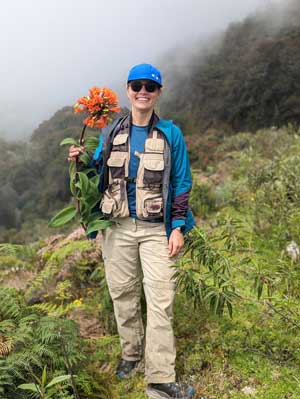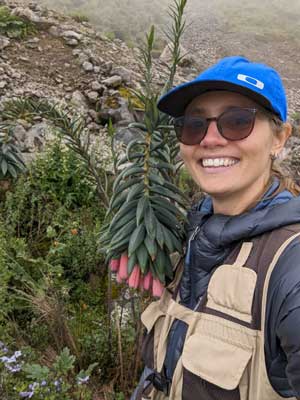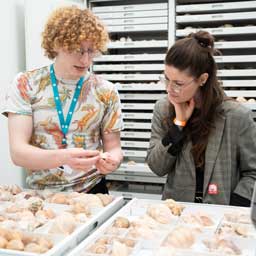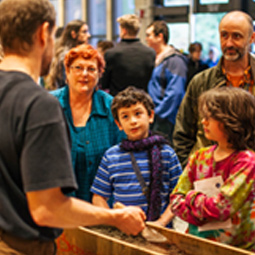Her main focus is plant evolution, morphological convergence (when organisms that aren’t closely related evolve similar features or behaviors), and biodiversity.

Tribble uses sophisticated statistical methods to model the evolution of complex and understudied natural phenomena, and works on diverse plant lineages, including monocots and ferns, in regions such as the American tropics, Hawai’i, and the Pacific Northwest. Looking ahead, she hopes to create initiatives that emphasize the value of fungal collections and encourage more research in fungal biodiversity.
Like many of her new colleagues at the Burke, Tribble prioritizes building stronger, more reciprocal ties to tribal communities in the region. In addition to her work at the museum, she has also joined the University of Washington Department of Biology as an assistant professor.

Tribble received her doctorate in integrative biology from the University of California, Berkeley, in 2020, and was most recently Postdoctoral Fellow and Collections Manager at University of Hawaiʻi, Mānoa. Among many other awards and grants, she has been recognized for her research and scholarship by the National Science Foundation and was a Fulbright Student Researcher in Peru.
Outside of work, Carrie enjoys hiking and being outdoors, spending quality time with her rescue dog Kula and her partner Deane, and learning about her new home in the Pacific Northwest!

